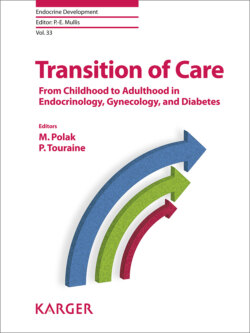Читать книгу Transition of Care - Группа авторов - Страница 24
На сайте Литреса книга снята с продажи.
Psycho-Emotional Development of the Child
ОглавлениеChildren are not miniature adults. They are beings undergoing both physical and psychological development, and their growth is a process that does not always run smoothly and that happens in a series of stages. Furthermore, any psychopathological symptoms in the child must still be put in the perspective of maturing [1]. Children are beings dependent on their families. While also grappling with their family, their functioning can only be understood in the light of its emotional and relational organization.
Sigmund Freud put forward the hypothesis that, based on their vital needs, children seek to undergo and relive pleasurable experiences. Thus, the need/desire dialectic comes to make an impression on the child and organizes the entire psycho-emotional development. The Oedipus complex (between the ages of 2 or 3 and 6 or 7) is one of its universal features. Because it plays a key part in the emotional future of the child, the Oedipal conflict leaves its mark on the childhood story as well as the journey of adulthood.
When they manage to become less involved in the passions (with incestuous and parricidal overtones) of their infancy linked to their father and mother, based on both love (affection, tenderness, etc.) and hate (aggression, desire, jealousy, etc.), the child enters a “latent” period, by which their socio-educational and cognitive investment becomes central. Psychological energy is displaced and invested in the learning (reading, writing, etc.) that, around the age of 7 or 8 and beyond, occupies a special place in the child’s life. Simultaneously, the child learns to love other individuals (teachers, leaders, peers, etc.) using the yardstick of an internalized emotional parental model. For example, for the little boy, love for the internalized mother figure remains a trace, a residue that serves only to prepare for the future love choice. This latency is nonetheless a particularly fertile period for the child’s psycho-emotional development in that it also implicitly prepares for the changes specific to puberty, both physical and psychological. It is during this journey that adolescence constitutes the “afterwardsness” of childhood.
